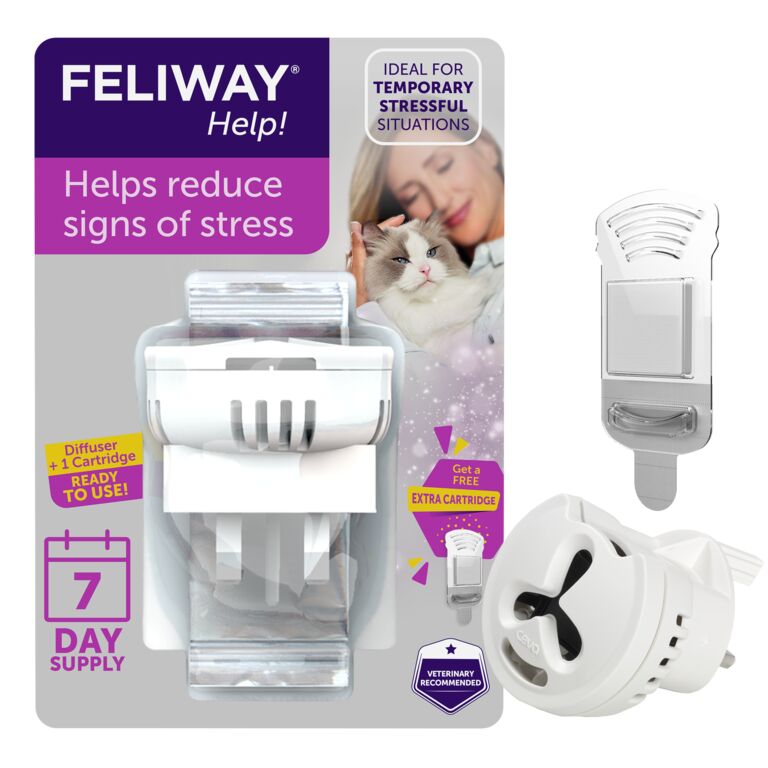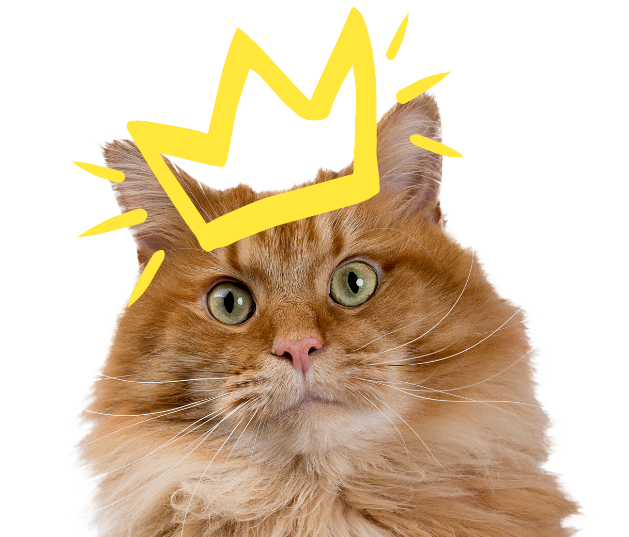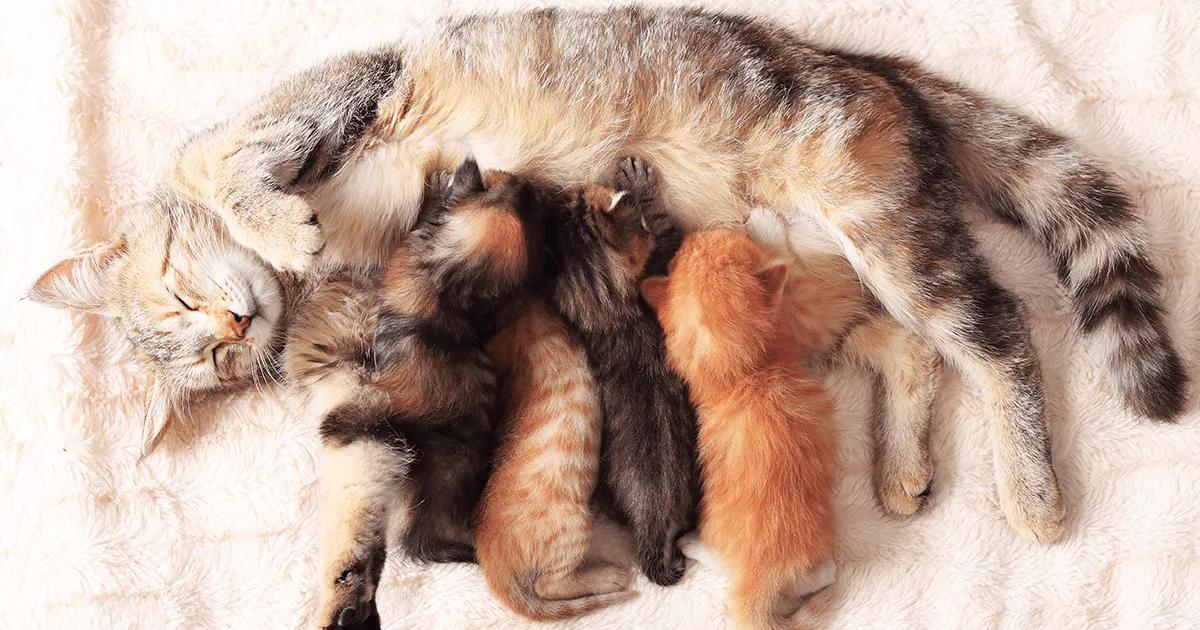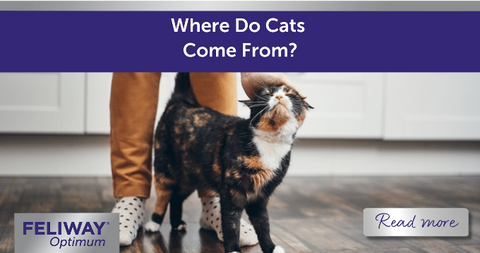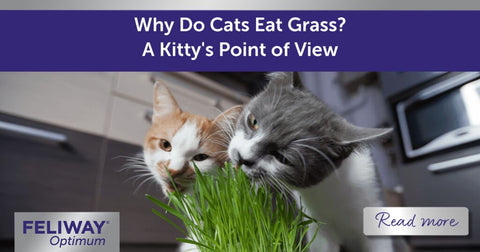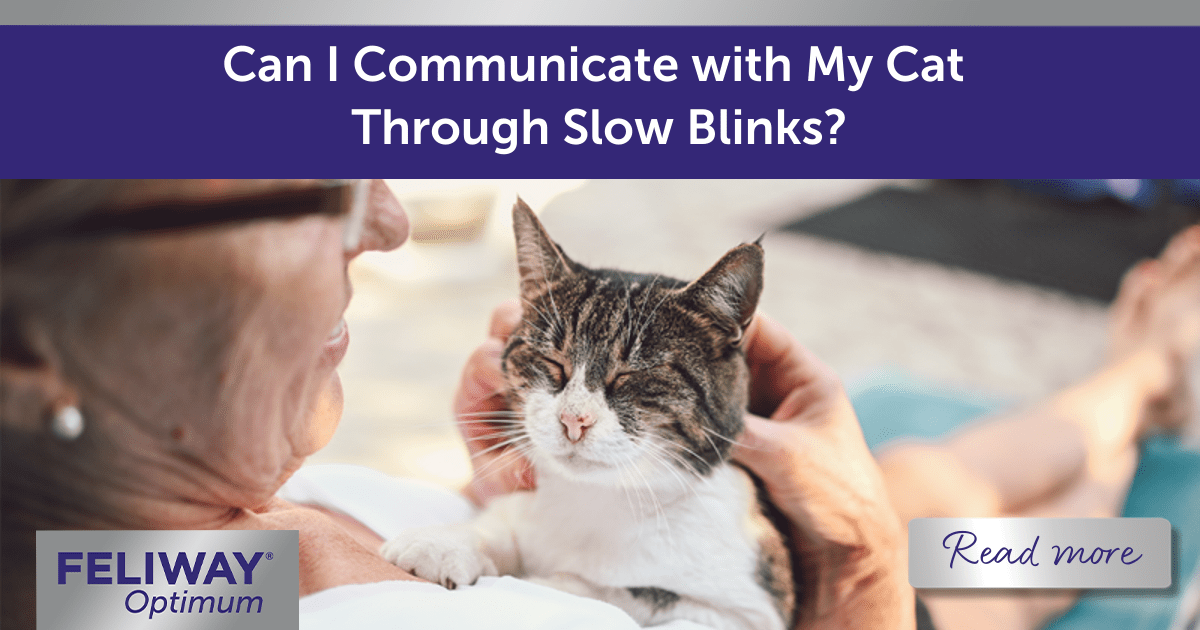
Can I Communicate With My Cat Through Slow Blinks?
How can you show your cat that you love them? We say ‘I love you!’ to our cats all the time – and sometimes we’ll get a ‘meow!’ back! But, are there other ways to ‘speak cat’ and share the love?
Cats have their own ways of communicating with us, like meowing, purring and kneading. Pet parents can often distinguish between these meows – like a ‘hello’ meow or an ‘I need something’ meow.
But, have you tried a non-verbal slow blink to ‘speak’ to your cat?
According to a study published in Scientific Reports, the 'role of cat eye narrowing movements in cat-human communication' is the equivalent of a cat smile!
We take good care of our feline friends by making sure they have everything their hearts desire – cosy beds, hiding places, high spots, scratching posts, their favourite food and treats, and even some homemade toys. Living with them, we have learned to read their body language and know when they are content, happy or stressed – but perhaps, until recently, we have not recognised a ‘cat’s smile’.
As has been discovered, cats also communicate through blinking. As our Happy Cat Expert explains, understanding your cat’s body language is essential for developing that special bond; subtle, slow blinking is thought to be used by cats to indicate a sense of calm and a positive emotional state.
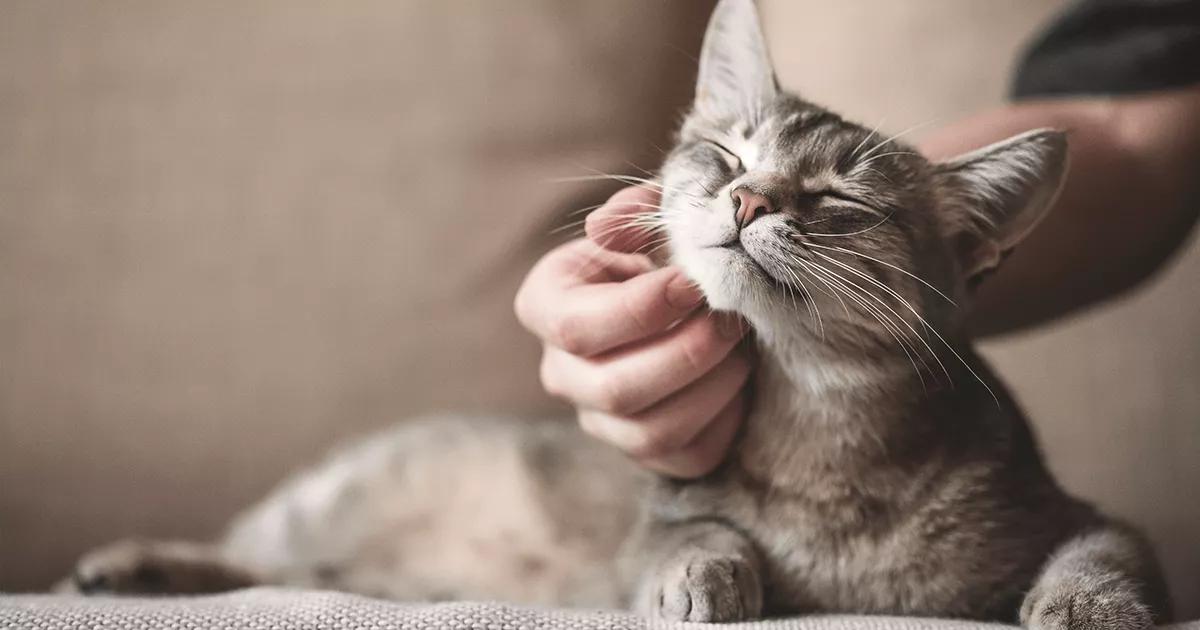
How to communicate with your cat through slow blinks
- Only try slow blinking with your cat when they are at their most relaxed and in a receptive mood; perhaps when you would normally be relaxing together.
- Choose a familiar environment in the home – it might help to have FELIWAY Optimum plugged in.
- Close, or partially close, your eyes for more than half a second at a time.
- Repeat slowly a few times and look carefully to see if your cat is blinking back at you.
However, to understand other looks from your cat, it’s important to learn to read them in combination with their body language too:
- Eyes that are wide open could mean they are worried or stressed.
- Eyes that are staring could be a warning sign not to come closer, or it could mean that they want attention.
- Slit or squinting eyes could mean they are content and relaxed, but if their ears are laid back and their tail is twitching, it might mean something completely different!
Other tips for communicating with your feline friend
Learn their body language
This helps you to understand when they are feeling happy, or when they are not content in a situation. You need to learn to understand how your cat likes to be stroked and handled, and which signs indicate that they want to be left alone.
Don’t reprimand or punish your cat
This may be confusing for them; it could make a situation worse and could affect the bond between you. Instead, look for the times your cat is making choices that you like, and reward those. Your cat will quickly learn what works for you both.
Consider training
Yes, cats can be trained! It’s a great way to deepen your bond and learn things together.
Understand a cat’s pheromones
As well as the physical signs of communication, the feline species normally communicates through pheromone messages, which are released through the scent glands on their body, at different times and for specific reasons. These glands are located on their chin, lower ears, forehead, cheeks, tail, rear, back and paw pads, and are used for different purposes.
- Cats will use pheromones to leave their scent and mark their territory.
- When your cat rubs their head against you, furniture or other objects, comforting pheromones are released from their cheeks to enhance bonding and signal happiness and contentment. You might even find them slow blinking at you!
- Scents can be used to create familiarity with other cats.
- In a potentially threatening situation, a cat can release alarm pheromones from their feet. Whereas the cat appeasing pheromone, which is released from the mammary area of a nursing queen cat, helps bond the family unit together.
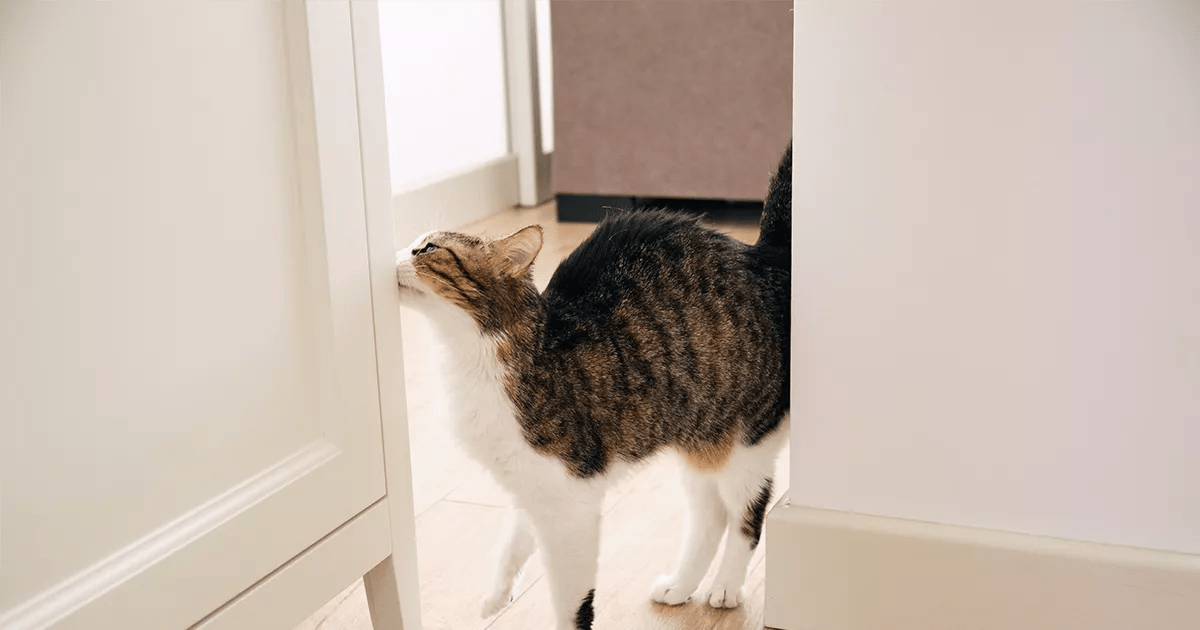
Pheromones are a natural part of cat communication. FELIWAY Optimum uses a feline pheromone complex to provide environmental and social comfort, and is recommended by vets to aid cats when they display signs of stress, helping them to remain calm.
So, the next time your cat rubs against you, remember they are marking you as someone they love and trust, and if this is combined with a slow blink, you know you have a very special bond together.













